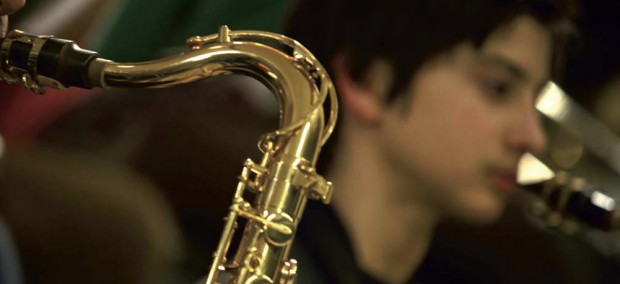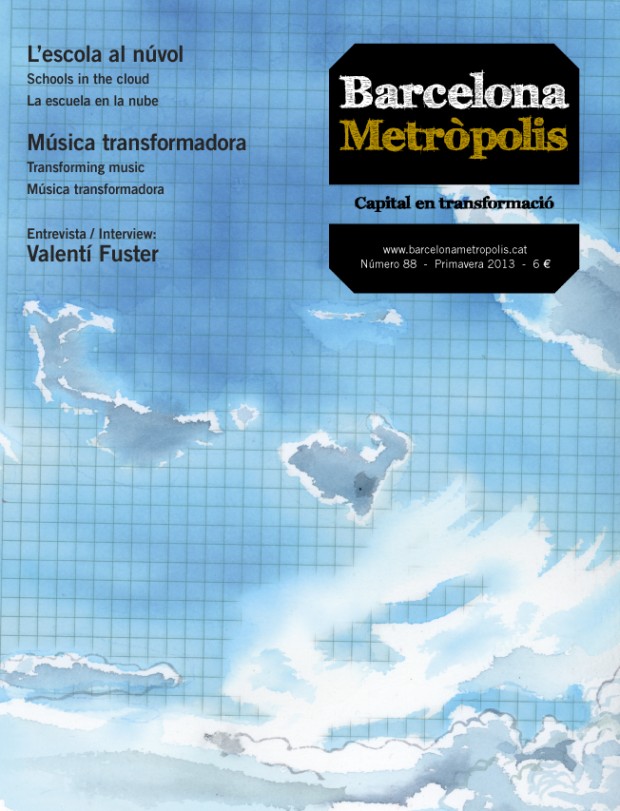True musical action does not talk about the number of music schools, of results in terms of numbers or sales, but rather the transforming power of music and the richness of art as a catalyst for social needs.

© Fabiola Llanos
Musicians of the Sant Andreu Jazz Band, an ensemble founded seven years ago at the Sant Andreu Municipal School of Music.
The teaching of art, and music in particular, has been revisited in recent years from different standpoints. Not just by the authorities and teachers, but also by artists, social educators and students themselves. First of all, the content of programmes in compulsory and higher education has had to be revised to bring music up to speed with other subjects and, as a result, Barcelona now has three schools that offer a higher diploma in music: the Escola Superior de Música de Catalunya (ESMUC), the Liceu and the Taller de Músics. Secondly, the number of music schools and the range of extracurricular activities have grown. All this has helped to complete a process for the standardisation of courses which has allowed us to start extricating ourselves from an anomalous situation, namely that art has long since been on the fringes of our society.
However, true musical action does not talk about the number of music schools, of results in terms of numbers or sales, but rather the transforming power of music and the richness of art as a catalyst for social needs. This is why new ideas in the world of art and artistic education have come to the fore: long-term projects that seek a solvent way out of a spiritual and value crisis; proposals that innovate and open up new paths; paths that are not plotted around the tables of an office, but in the street, in contact with the children, and become reliable indicators of transformations taking place in society while they are also transformed by it.
In the current debate, different voices agree that there is one thing that cannot be staved off any longer, namely that we cannot abandon culture if we do not wish to lose the values that contribute to personal growth and the development of our society’s identity. While in other fields, such as health, taking measures to prevent and alleviate costs and the future effects of the population’s bad habits is common, similar tools that would allow us to take care of the soul of tomorrow’s society are still regarded as utopian. With the shortage of resources, the truly essential becomes patent: the priorities of the community and people. Educating through art is an opportunity for the society of the future because it will enable us to develop significant findings, such as flexibility and integration, that will be much needed by children to build the society that is taking shape.
For some time now, new methods lying outside established frameworks have been proposing changes geared towards affording greater scope for creativity. Classroom experience is generating new proposals that are more flexible and open to social change in order to respond continuously to the needs of the community, thus making artistic education and culture a true social yardstick once and for all.
New professional figures are also emerging in the wake of these changes. A new profile has been born, somewhere between creator and activist, combining the facets of artist, teacher, social worker and manager; someone capable of engaging and liaising with decision-makers in many different areas, responsible for spearheading renewed musical and artistic activity. These professionals collaborate together and with other networks – organisations, neighbourhoods, schools – but above all they are committed to children, young people and their families. Open dedication, as yet not fully defined, is a long way ahead. Some examples of this are analysed in the following pages.



